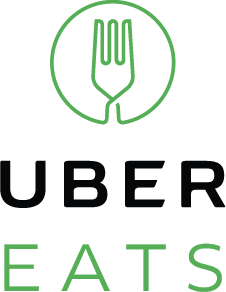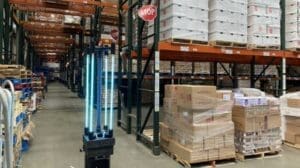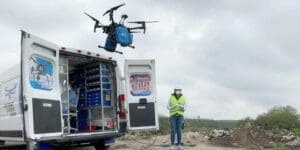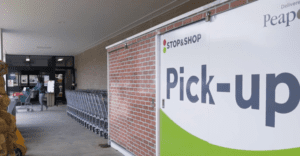 A little over a year and a half ago I saw Hamilton in Boston. The show was incredible, but I always wondered if I missed out by not seeing the original cast on Broadway. When I initially heard that Hamilton was set to hit the big screen in 2021 with a filmed performance by the original cast, I was pretty excited. With coronavirus shutting down theatres, Disney spent $75 million for the rights and released it a year early on its streaming service. Needless to say, that when it dropped on July 3, we had a family movie night. The production was brilliant and watching Daveed Diggs rattle off rhymes at warp speed was beyond enjoyable. It did make me happy that the performance I saw was not lacking for talent either. Both performances were incredible all around. And now on to this week’s logistics news.
A little over a year and a half ago I saw Hamilton in Boston. The show was incredible, but I always wondered if I missed out by not seeing the original cast on Broadway. When I initially heard that Hamilton was set to hit the big screen in 2021 with a filmed performance by the original cast, I was pretty excited. With coronavirus shutting down theatres, Disney spent $75 million for the rights and released it a year early on its streaming service. Needless to say, that when it dropped on July 3, we had a family movie night. The production was brilliant and watching Daveed Diggs rattle off rhymes at warp speed was beyond enjoyable. It did make me happy that the performance I saw was not lacking for talent either. Both performances were incredible all around. And now on to this week’s logistics news.
- Walmart reportedly launching Amazon Prime-like subscription service
- Uber in the news:
- MIT-designed robot can disinfect a warehouse floor in 30 minutes
- Drones deliver facemasks to Mexican hospitals
- Protective gear for medical workers begins to run low again
- Stop & Shop expands e-commerce operations as demand climbs
- FedEx Ground hires thousands to meet e-commerce demand
- Amazon delays Prime Day until October due to coronavirus
 According to recent reports, Walmart is launching a subscription service similar to Amazon Prime this month. While Walmart has declined to share specifics about the program, it appears that it will be named Walmart Plus, and will cost consumers $98 per year. Membership perks include same-day grocery delivery, gas station discounts, and early access to deals. The service was originally expected to launch by April, but its rollout has been delayed by the coronavirus pandemic, which is not surprising. The move makes sense as Walmart has seen a significant uptick in e-commerce business, most notably in online grocery sales. Overall, the company in May reported a 74 percent jump in e-commerce sales for its latest quarter.
According to recent reports, Walmart is launching a subscription service similar to Amazon Prime this month. While Walmart has declined to share specifics about the program, it appears that it will be named Walmart Plus, and will cost consumers $98 per year. Membership perks include same-day grocery delivery, gas station discounts, and early access to deals. The service was originally expected to launch by April, but its rollout has been delayed by the coronavirus pandemic, which is not surprising. The move makes sense as Walmart has seen a significant uptick in e-commerce business, most notably in online grocery sales. Overall, the company in May reported a 74 percent jump in e-commerce sales for its latest quarter.
 The whispers have been growing and the speculation non-stop, and now, the news is official: Uber has agreed to acquire the food delivery start-up Postmates for $2.65 billion. This comes as the company aims to expand its presence in on-demand food delivery while its core ride-hailing business struggles. Uber will combine Postmates with its own food delivery subsidiary, Uber Eats, and Postmates will continue to operate under its own name. Together, Postmates and Uber Eats would have a 37 percent share of food delivery sales in the United States, according to Edison Trends, which tracks credit card spending. DoorDash would remain the largest player with 45 percent, while Grubhub would have 17 percent.
The whispers have been growing and the speculation non-stop, and now, the news is official: Uber has agreed to acquire the food delivery start-up Postmates for $2.65 billion. This comes as the company aims to expand its presence in on-demand food delivery while its core ride-hailing business struggles. Uber will combine Postmates with its own food delivery subsidiary, Uber Eats, and Postmates will continue to operate under its own name. Together, Postmates and Uber Eats would have a 37 percent share of food delivery sales in the United States, according to Edison Trends, which tracks credit card spending. DoorDash would remain the largest player with 45 percent, while Grubhub would have 17 percent.
And Uber is not done – the company has announced that it is launching a grocery delivery service in the United States, along with parts of Canada and Latin America. The company is partnering with Cornershop, a Chilean grocery delivery startup. According to Uber, “with this service launch, grocery orders placed on Uber and Uber Eats will be facilitated and delivered by Cornershop team members. Just like ordering a ride or a meal with Uber, customers can follow their grocery delivery at each step of the process.”
 My colleague Steve Banker has written about decontamination robots, and how they can impact worker safety in a warehouse and/or factory. And we have seen multiple companies develop robots that can help to clean these spaces. As coronavirus concerns linger, and new information about the spread of the disease are constantly changing, MIT has designed a robot that is capable of disinfecting the floor of a 4,000-square foot warehouse in only half an hour. The university’s Computer Science and Artificial Intelligence Laboratory (CSAIL) worked with Ava Robotics, a company that focuses on creating telepresence robots, and the Greater Boston Food Bank (GBFB) to develop a robot that uses a custom UV-C light to disinfect surfaces and neutralize aerosolized forms of the coronavirus. The results have been encouraging enough that the researchers say that autonomous UV disinfection could be done in other environments such as supermarkets, factories and restaurants.
My colleague Steve Banker has written about decontamination robots, and how they can impact worker safety in a warehouse and/or factory. And we have seen multiple companies develop robots that can help to clean these spaces. As coronavirus concerns linger, and new information about the spread of the disease are constantly changing, MIT has designed a robot that is capable of disinfecting the floor of a 4,000-square foot warehouse in only half an hour. The university’s Computer Science and Artificial Intelligence Laboratory (CSAIL) worked with Ava Robotics, a company that focuses on creating telepresence robots, and the Greater Boston Food Bank (GBFB) to develop a robot that uses a custom UV-C light to disinfect surfaces and neutralize aerosolized forms of the coronavirus. The results have been encouraging enough that the researchers say that autonomous UV disinfection could be done in other environments such as supermarkets, factories and restaurants.
 Mexico has had a shortage of safety equipment for frontline workers with protests being held across the country demanding better working conditions. Sincronia Logistica has said it has been using drones to deliver facemasks to Mexican hospitals to remove the risk of human-to-human transmission of COVID-19. The drones have been delivering the medical safety equipment to hospitals in the central state of Queretaro. The Mexico City-based pharmaceutical and logistics company, Sincronia Logistica has turned to drone technology to deliver antibacterial gel, facemasks, gloves, 3D-printed face shields, and other supplies to healthcare workers on the frontline. The majority of what the drones are delivering has been donated to Sincronia Logistica to deliver to the healthcare workers.
Mexico has had a shortage of safety equipment for frontline workers with protests being held across the country demanding better working conditions. Sincronia Logistica has said it has been using drones to deliver facemasks to Mexican hospitals to remove the risk of human-to-human transmission of COVID-19. The drones have been delivering the medical safety equipment to hospitals in the central state of Queretaro. The Mexico City-based pharmaceutical and logistics company, Sincronia Logistica has turned to drone technology to deliver antibacterial gel, facemasks, gloves, 3D-printed face shields, and other supplies to healthcare workers on the frontline. The majority of what the drones are delivering has been donated to Sincronia Logistica to deliver to the healthcare workers.
The personal protective gear that was in dangerously short supply during the early weeks of the coronavirus crisis in the US is running low again as the virus resumes its rapid spread and the number of hospitalized patients climbs. A national nursing union is concerned that gear has to be reused. A doctor’s association warns that physicians’ offices are closed because they cannot get masks and other supplies. And Democratic members of Congress are pushing the Trump administration to devise a national strategy to acquire and distribute gear in anticipation of the crisis worsening into the fall.
 As online grocery sales continue to soar, Stop & Shop is expanding its e-commerce operations. Stop & Shop will add three new warerooms and bring pickup service to at least 50 more locations in 2020. The retailer currently operates 21 warerooms, which are e-commerce fulfillment spaces that are typically attached to brick-and-mortar stores and feature manual order picking and packing, according to a Stop & Shop spokesperson. Grocery pickup, which Stop & Shop launched last summer, is currently available at 212 stores, and orders are available for customers to collect in as little as four hours. The grocer also recently expanded its partnership with Instacart, which now offers same-day delivery service from 321 Stop & Shop stores.
As online grocery sales continue to soar, Stop & Shop is expanding its e-commerce operations. Stop & Shop will add three new warerooms and bring pickup service to at least 50 more locations in 2020. The retailer currently operates 21 warerooms, which are e-commerce fulfillment spaces that are typically attached to brick-and-mortar stores and feature manual order picking and packing, according to a Stop & Shop spokesperson. Grocery pickup, which Stop & Shop launched last summer, is currently available at 212 stores, and orders are available for customers to collect in as little as four hours. The grocer also recently expanded its partnership with Instacart, which now offers same-day delivery service from 321 Stop & Shop stores.
While the global pandemic has taken a toll on many industries, home delivery has been soaring. Since the start of the pandemic, FedEx has hired tens of thousands of package handlers and service providers. The company continues to hire, with thousands of openings seeming to pop up on a weekly basis. According to FedEx:
“The surge in e-commerce during the pandemic has resulted in peak-like levels of package volume for FedEx Ground. Similar to our peak season efforts, we are proactively taking steps to help ensure we continue to deliver for our customers, including hiring, collaborating with customers regarding capacity levels, and leveraging our Sunday residential delivery offering. Since March, FedEx Ground has hired tens of thousands of package handlers and service providers have onboarded thousands of drivers in targeted markets. The pace of hiring continues as we manage ongoing demand for our services and prepare for the coming peak season.”
 And finally, Amazon is postponing its marquee shopping event Prime Day until at least early October. The company had previously targeted September as the potential timing for Prime Day, but on Wednesday, Amazon informed third-party sellers that the date could be pushed back another month. Prime Day, which started in 2015, is typically held in July. The discount celebration is partially designed to secure new Prime members, as well as to promote Amazon’s own products and services and provide a sales boost in the middle of the year.
And finally, Amazon is postponing its marquee shopping event Prime Day until at least early October. The company had previously targeted September as the potential timing for Prime Day, but on Wednesday, Amazon informed third-party sellers that the date could be pushed back another month. Prime Day, which started in 2015, is typically held in July. The discount celebration is partially designed to secure new Prime members, as well as to promote Amazon’s own products and services and provide a sales boost in the middle of the year.
That’s all for this week. Enjoy the weekend and the soundtrack of the week, Hamilton.
















